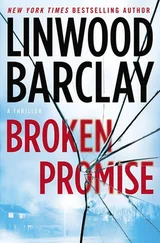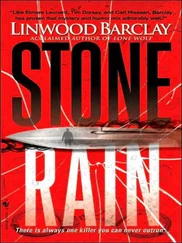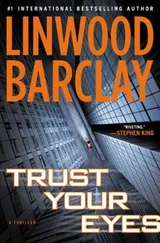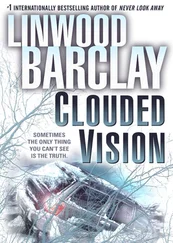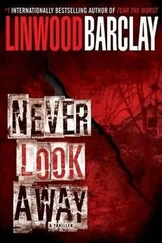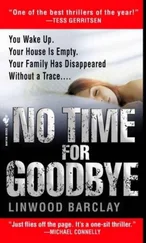“You want to come over, have a drink, something to eat?” I asked.
Bob shook his head no and went inside.
There were tuna sandwiches on the table when I walked into Dad’s cabin. “I didn’t do a thing,” Dad said. “Lawrence here made lunch.”
I suddenly realized I was starving, and sat at the table and practically inhaled the sandwich.
Lawrence said, “Your father’s kinda been filling me in. The stuff you already told me, plus some other stuff.”
“I don’t know whether there’s anything here for you to do or not,” I said. “I’m sorry if I dragged you up here for nothing.”
“Well, from the sounds of it, these folks renting the farmhouse from your dad are bad news, no matter how you look at it. I think we start by trying to find out more about them.”
I shrugged. I just didn’t know anymore.
“I do know one thing that hasn’t changed,” I said. “And that’s May Wickens, and her boy, Jeffrey. They still need to get away from her father, Timmy. No boy should be growing up, getting indoctrinated in the kind of hate that’s preached up there by that man.”
“So this Timmy, he hates fags and niggers and Jews and probably the New York Philharmonic as well,” Lawrence Jones said thoughtfully.
“Yeah. And he decides what lessons his daughter should teach his grandson.”
He pursed his lips, nodded. “Doesn’t sound to me like a very enlightened curriculum.”
“What are you going to do?” I asked him, taking another bite of my sandwich and feeling a bit apprehensive.
“We’ll see,” Lawrence said.
When I finished my lunch, I went into Dad’s study to see whether Sarah had gotten back to me.
I signed on to the mail program. Bingo.
Sarah wrote:
When are you coming home? Angie and Paul are starting to drive me crazy. No, I take that back. They’ve always driven me crazy, but when you’re home, at least you can take some of the brunt of it. I’ve spent $60 on taxis just so I won’t have to referee all these fights over the car. I don’t want to give you something else to worry about, but the dishwasher is making a really weird noise, it goes chugga-chugga halfway through the cycle, sounds like there’s a cat in there. The dishes are coming out dirty, which means they have to be done by hand, which means I have to ask Paul or Angie to do them in the sink, which sets off World War Three because they each think it’s the other person’s turn. And while I’m on the subject of cats (see dishwasher, above), both the kids are talking about getting a dog. Where did that come from? I don’t want any part of it.
They’re making some noises around the offices about when you’re coming back. There’s a Star Trek convention in town this week and the features editor figured you’d be the perfect guy to cover it, which I happen to disagree with. I say you send someone who DOESN’T know the first thing about Star Trek, and can take a look at these sci-fi nuts, no offense intended, and offer an unbiased perspective, but what the hell do I know.
Now, your requests. I made some calls about women’s shelters. A place where this woman and her kid could go. I’ve got a contact at Kelly’s Place, the one that was named in honor of that woman whose husband killed her with a crossbow. They’ve got a spot, if you think she’s interested.
And on the other thing, the picture you sent me, of Orville Thorne, the police chief. Nice fish, by the way. I’m pretty sure I’ve never seen this guy before, but if you’re wondering why he looks so familiar, maybe you should go stand in front of a mirror. The guy looks just like you. You could be brothers, for crying out loud.
All for now. Love, Sarah.
I stared out the window, and into the woods, for a good five minutes.
I remember it like it was yesterday.
I am twelve years old.
My mother is standing just inside the front door, looking back into the house, two suitcases packed and at her side, my father at the top of the stairs, saying, “Evelyn, don’t go.”
It is raining outside, and Mom is wearing her tan raincoat, with the long dangly belt that is always slipping out of the loops, over a blue striped dress, and if she had just come in from the outside, you might have thought those were two raindrops running down her cheeks.
I am standing next to my sister, Cindy, who’s fourteen. Mom looks at me and tries to smile and says, “You two look after each other, okay? Your dad’s going to be busy and won’t be able to look after everything.”
I am numb. What is going on here? Why does Mom have suitcases packed? Where is she going? How long is she going to be gone? I get this horrible feeling that if she goes, she is not coming back. That she is leaving forever. What has Dad done to make her so angry she has to leave?
“Where are you going?” Cindy asks. “Will you bring me something back?”
“Don’t be an idiot,” I snap at her. “She’s not coming back.”
Cindy shouts at me. “Shut up! You don’t know anything!” She’s so angry, she must have some idea that this is actually the truth.
Mom swallows. She is crying. “I’ll send you something,” she says. “And I’ll call you all the time.”
Dad shakes his head. “This is crazy. You can’t do this. We can figure out something else.”
Mom looks at him. “Arlen, I think you know why I have to do this.”
There are tears in his eyes, too. He turns away so we can’t see him wiping them away.
There have been arguments in the night. For a few weeks now, it seems. Sometimes, in bed, I pull the pillow over my head so I won’t hear their muffled voices through the wall.
I know Dad drives her crazy on occasion, but I’ve never thought his behavior would drive her out of the house. I mean, he drives me and Cindy crazy, too, but we aren’t leaving. It seems no more a choice for Mom than it does for us, as children.
It has not been that long since the infamous Emergency Brake Incident. Five or six months, maybe.
We have a white Volkswagen Beetle, with the motor in the back, and it distresses Dad to no end that his wife can’t remember to pull up on the emergency brake when she parks the car. She figures leaving the gearshift engaged holds the car in place, and on level ground, you can get away with that, I suppose, but there is a slight incline to our driveway, which means that if the shifter were to somehow become disengaged, our Bug would roll back and out into the street.
Dad reminds her time and again that she has to put the emergency brake on, and sometimes she remembers, but most times she forgets. Mom is a bit forgetful at times, easily distracted. She explains that she’s the one who keeps the house running, that she has a lot to keep track of, and if she can manage to make twenty-one meals a week and change the sheets and do the laundry, can’t she be forgiven if she doesn’t always remember to put on the emergency brake?
It doesn’t help that our other car, a 1965 Dodge Polara, has automatic transmission, and even Dad rarely bothers to shove the emergency brake foot pedal down in it. Mom must figure, if she doesn’t have to remember it in the Dodge, why does she have to remember it in the Volkswagen?
One day, Dad decides to teach her a lesson.
She’s returned from grocery shopping, and Dad slips out to see whether she’s remembered to put the brake on. He does this almost every time she comes home, and if she’s slipped up, he’ll come in right away and let her know. If she’s remembered, he says nothing. Sometimes, soon as Mom gets home, I’d slip out before Dad can and if Mom has forgotten to pull the brake on, I’ll do it.
This one particular day, I guess he’s had enough.
He gets into the Beetle and coasts it back, just far enough that the back end is hanging into the street about a foot. Then he slips it back into gear, resists the temptation to put the emergency brake on, and goes back up into our garage, where he finds Cindy’s red and white tricycle, which we still have, even though she hasn’t ridden it in six years or more. The garage is filled with stuff we’ve outgrown, including a turquoise pedal car I once used to tour the neighborhood and pick up hot four-year-olds.
Читать дальше

